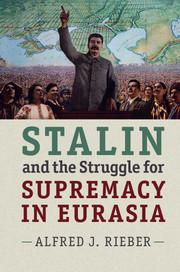Book contents
- Frontmatter
- Dedication
- Contents
- List of maps
- Acknowledgments
- List of abbreviations
- Introduction
- 1 Stalin, man of the borderlands
- 2 Borderlands in Civil War and Intervention
- 3 The borderland thesis: the west
- 4 The borderland thesis: the east
- 5 Stalin in command
- 6 Borderlands on the eve
- 7 Civil wars in the borderlands
- 8 War aims: the outer perimeter
- 9 War aims: the inner perimeter
- 10 Friendly governments: the outer perimeter
- Conclusion: A transient hegemony
- Index
3 - The borderland thesis: the west
Published online by Cambridge University Press: 05 September 2015
- Frontmatter
- Dedication
- Contents
- List of maps
- Acknowledgments
- List of abbreviations
- Introduction
- 1 Stalin, man of the borderlands
- 2 Borderlands in Civil War and Intervention
- 3 The borderland thesis: the west
- 4 The borderland thesis: the east
- 5 Stalin in command
- 6 Borderlands on the eve
- 7 Civil wars in the borderlands
- 8 War aims: the outer perimeter
- 9 War aims: the inner perimeter
- 10 Friendly governments: the outer perimeter
- Conclusion: A transient hegemony
- Index
Summary
The rise and consolidation of Soviet power inaugurated a new era in Russia's relations with the borderlands. The Bolsheviks came to power in the Great Russian heartland. But the leadership assumed that their revolution would not be isolated there or even confined to the territory of the old tsarist empire. They expected it to break out elsewhere in Europe, particularly in the advanced industrial states and spread rapidly to the rest of the globe. Instead, what happened in the decade after the revolution was a series of civil wars in the periphery of tsarist Russia and disconnected revolutionary outbreaks and national liberation movements in Central Europe – Germany twice, in 1918 and 1924, Hungary in 1919, Bulgaria in 1924 – and China in 1927.
All the Bolshevik leaders beginning with Lenin sought to resolve the dilemma by domesticating foreign policy. That is, without abandoning the rhetoric or the long-term goal of world revolution, they gave precedence to strengthening the institutions of the Soviet Union and centralizing state power by restricting autonomy in the borderlands and controlling the activities of foreign Communist parties in the Comintern. Stalin gradually accelerated this trend. By the mid-1930s his campaign to suffuse Soviet institutions and ideology with a Great Russian coloring suggests that the process of domestication was giving way to nationalizing the state.
Stalin lifted domestication to a new level. His victory in the constitutional struggle had marked a major stage in weaving his borderland thesis into the conduct of both domestic and foreign policy. His concept of the state had severely weakened if not wholly eliminated the political challenge of the national opposition led by representatives of the borderlands. He now shifted his attention to defeating his ideological and personal enemies among the top party leadership by employing his borderland thesis in order to reformulate the relationship between the newly constructed Soviet state and the world revolution. At the same time, he moved to take under his control the main instruments of foreign policy, the army, the Foreign Commissariat and Comintern, all bastions of his rivals’ influence and power. Finally, he did not neglect to finish off the remnants of the national opposition within the party and to refine his nationalities policy in ways that would further consolidate the political domination of the center over the periphery while preserving, partly in real and partly in bogus terms, the multicultural character of the state.
- Type
- Chapter
- Information
- Stalin and the Struggle for Supremacy in Eurasia , pp. 90 - 125Publisher: Cambridge University PressPrint publication year: 2015



